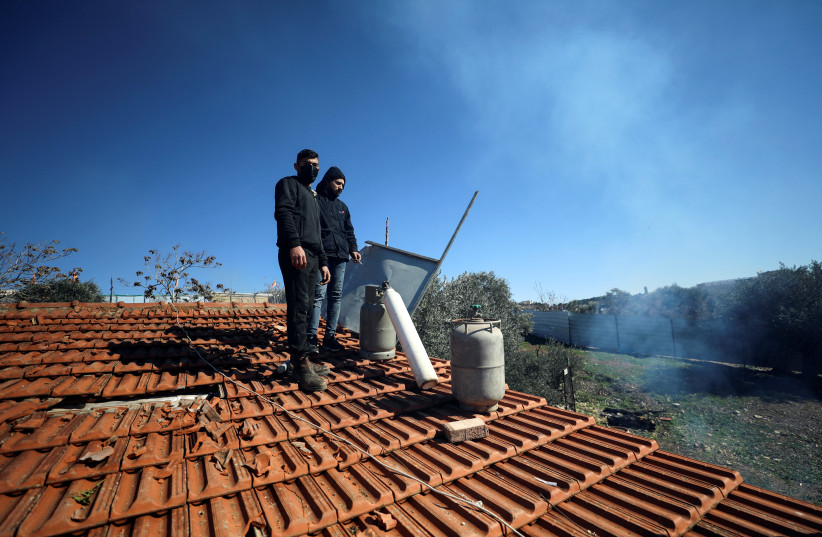The European Union accused Israel of fueling tensions with its actions in east Jerusalem this week, both its advancement of a new Jewish neighborhood and the demolition of two homes in the Sheikh Jarrah neighborhood.
“Settlement expansion, demolitions and evictions are illegal under international law,” the European Union said in a statement released to the Israeli media on Thursday. “They exacerbate tensions, threaten the viability of the two-state solution and diminish prospects for a lasting peace.”
At issue was the decision by the Interior Ministry’s Jerusalem District Committee for Planning and Building, which on Monday advanced plans for 1,450 Jewish homes for what has been dubbed the “Lower Aqueduct Project.”
That parcel is located between two east Jerusalem Jewish neighborhoods of Har Homa and Givat Hamatos. The former is already constructed, and building is mostly pending in the latter.
France, Germany, Spain and Italy issued a separate statement, with France also publishing a joint statement with Ireland and Estonia.

“The new housing units would further disconnect the West Bank from east Jerusalem and constitute an additional obstacle to the two-state solution,” the four countries stated. “We urge the Israeli authorities to reverse this decision.”
France and Ireland are the two EU members of the UN Security Council, and Estonia is a former member.
The trio warned that the Lower Aqueduct project “will further undermine territorial contiguity of a future Palestinian State.”
Both issues came up when the UN Security Council held its monthly debate on the Israeli-Palestinian conflict on Wednesday.
The international community and the Palestinian Authority consider east Jerusalem as the future capital of the Palestinian state. It believes that Israeli Jewish construction and demolition of Palestinian homes in that part of the city endangers that status.
Israel holds that a united Jerusalem is the capital of the Jewish state and that it has a right to advance building in the city. It has also insisted that the hundreds of pending Palestinian evictions are the result of real estate disputes, including the two Sheikh Jarrah demolitions.
The demolitions followed a property dispute between the Jerusalem Municipality and the Sulhia family, whose ownership of the property is contested and has not been upheld by the courts. The Jerusalem Municipality also maintains that the two homes on the property were built illegally.
The legal battle dates at least to the late 1990s, but the family’s hold on the property became more problematic in 2017, when the city expropriated the land for public use. It plans to build a school there for Arab children with disabilities.
The eviction and demolition of the two Sulhia family homes took place during an appeal by the family to the Jerusalem District Court.
Ambassador to the UN Gilad Erdan defended the demolitions in New York on Wednesday.
“We are talking about a family that stole public lands for their own private use, while these lands have been earmarked for the building of a school for children with special needs,” Erdan told the Security Council. “This is a municipal issue that has gone through all of the respected channels of the independent Israeli legal system, yet nevertheless the Palestinians use this issue – and this institution’s Pavlovian anti-Israel response – for their own political gains.”
US Ambassador to the UN Linda Thomas-Greenfield told the Security Council that “to make progress, both Israel and the Palestinian Authority must refrain from unilateral steps that exacerbate tensions and undercut efforts to advance a negotiated two-state solution.” This includes “demolitions, and evictions – like what we saw in Sheikh Jarrah.”
Other council members took a harsher tone.
Ireland’s Ambassador to the UN Geraldine Byrne Nason said that what happened in Sheikh Jarrah was “part of an ongoing pattern of demolitions, evictions and settlement expansion across the West Bank including east Jerusalem, which continues apace. These actions have severe humanitarian consequences – and this incident, in particular, threatens the fragile status quo in Jerusalem and risks increasing violence.”
The United Kingdom, Mexico and Russia were among the states that spoke out about the issue.
Norway’s Foreign Minister Anniken Huitfeldt, who chaired the meeting, spoke about the demolitions and said, “This must stop!”
